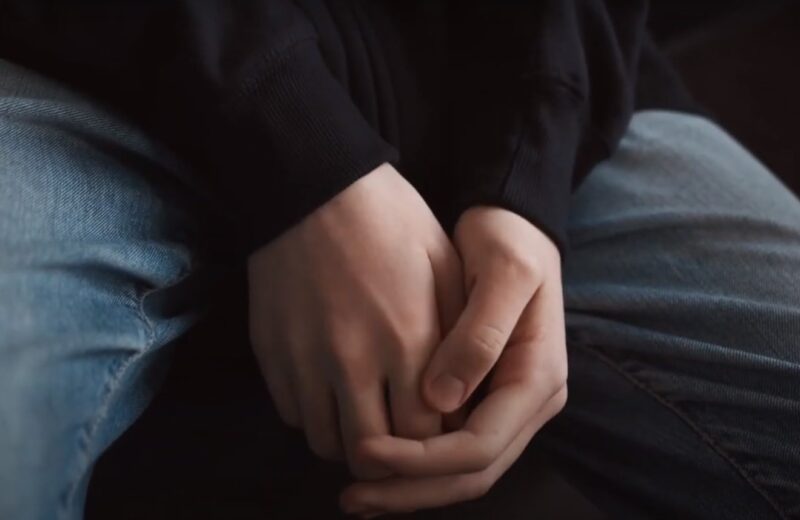Nail biting is often dismissed as merely a bad habit. However, beneath the surface of this seemingly innocuous behavior lies a plethora of spiritual and emotional significance. Of course, each one reveals an insight into our innermost fears, desires, and struggles.
For this reason, we believe it is important to explore every meaning behind this habit. When you’re aware of spiritual meanings, you will exactly where to seek the solution to the problem.
Without further ado, let us begin.
Key Takeaways:
1. Indicator of Low Self-Esteem

Nail-biting often serves as a poignant indicator of low self-esteem. This seemingly innocuous behavior can, in reality, be a manifestation of deeper psychological struggles, particularly those related to one’s perception of self-worth and confidence. Onychophagia, which is a medical term for this habit, is quite common, with over 30% of adults in the US doing it.
Engaging in this repetitive action can inadvertently fuel a cycle of self-sabotage, where each instance of nail-biting not only reinforces negative self-views but also amplifies underlying feelings of anxiety and inadequacy.
The roots of this habit often trace back to childhood, a time when individuals were particularly vulnerable to stress and insecurity. For many, nail-biting begins as a coping mechanism to navigate these complex emotions, offering a temporary sense of relief or distraction from distressing thoughts or situations.
The relief is fleeting, and over time, the habit becomes ingrained, persisting into adulthood as a familiar yet detrimental comfort mechanism. This persistence underscores the habit’s role not merely as a physical tic but as a reflection of ongoing struggles with self-esteem.
The cycle of nail-biting and self-sabotage is particularly insidious because it operates on both a conscious and subconscious level. On the surface, individuals may recognize the habit as undesirable or socially frowned upon, which can further erode self-esteem each time they find themselves unable to stop.
2. Coping Mechanism for Stress and Anxiety

Nail-biting also serves as an expression of internal conflict, acting as a barometer for stress, anxiety, frustration, and impatience.
| Underlying Issue | Potential Strategy for Addressing It |
|---|---|
| Stress | Engage in relaxation techniques such as deep breathing, meditation, or yoga to reduce stress levels. |
| Anxiety | Seek professional counseling or therapy to develop healthy coping strategies for managing anxiety. |
| Frustration | Identify sources of frustration and explore problem-solving approaches or seek support to address them. |
| Impatience | Practice mindfulness and patience-building exercises to cultivate a more tolerant and calm mindset. |
| Personal Unrest | Reflect on personal values and goals to identify and address areas of dissatisfaction or conflict. |
| Professional Challenges | Consider career counseling or professional development opportunities to navigate workplace stressors. |
| Spiritual Uncertainty | Explore spiritual or philosophical teachings that resonate, potentially through reading, discussion groups, or guidance from spiritual leaders. |
This compulsive behavior, while offering a momentary escape from emotional discomfort, is ultimately an unhealthy coping mechanism. It highlights the presence of deeper, unresolved issues that may originate from various aspects of one’s life, be it personal dilemmas, professional challenges, or spiritual uncertainties. Recognizing nail-biting as a signal rather than a mere habit can be the first step towards addressing and mitigating the root causes of these emotional states.
3. Connection to Mental Health Conditions

Nail-biting can also be a manifestation of underlying mental health conditions, such as:
- Attention Deficit Hyperactivity Disorder (ADHD)
- Obsessive-Compulsive Disorder (OCD)
These conditions can get more intense with the frequency and severity of nail-biting, turning it into a visible symptom of psychological issues. Its compulsive nature in individuals with these disorders is not merely a matter of habit or nervousness. It is a complex behavior that is intricately linked with the neurobiological and psychological aspects of their conditions.
Figuring out and dealing with these challenges can be just as interesting and eye-opening as going through a spiritual journey in your dreams, where you meet these creatures, like tigers, that symbolize resilience and our inner strength to tackle life’s tough moments.
- ADHD and Nail-Biting: Nail-biting in individuals with ADHD may serve as a form of self-stimulation or focus maintenance.
- OCD and Nail-Biting: For those with OCD, nail-biting can be a compulsive behavior aimed at reducing anxiety or controlling intrusive thoughts.
4. Unhealthy Relationships with Mothers

The relationship between a child and their mother is foundational, laying the groundwork for future emotional and psychological development. When this relationship is fraught with tension, neglect, or misunderstanding, it can leave lasting scars, manifesting in various ways, including the development of habits like nail-biting.
This behavior can emerge as a subconscious attempt to self-soothe, seeking the comfort and security that was lacking in the maternal relationship. It’s a silent cry for the nurturing and stability that should have been provided unconditionally.
Unhealthy dynamics with one’s mother can instill a sense of insecurity and anxiety from a young age, emotions that children are ill-equipped to process or understand fully. In the absence of healthy coping mechanisms, nail-biting becomes a physical outlet for these pent-up feelings.
It’s a manifestation of the internal turmoil that has been simmering beneath the surface, often unnoticed or unaddressed by those around them. Moreover, this habit can also be seen as a form of control in a relationship where the individual felt powerless.
5. Spiritual Negativity and Lack of Grounding

When viewed through spiritual lenses, this habit signals a deeper imbalance within an individual’s life. It can be a physical manifestation of spiritual unrest, indicating a disconnection from one’s inner self or a broader spiritual disengagement.
Such a disconnection can lead to feelings of being unmoored, with nail-biting serving as a subconscious attempt to seek grounding or comfort amidst spiritual turbulence. The act of compulsively biting one’s nails can thus be interpreted as a sign that one needs to re-establish a sense of grounding and balance.
Engaging in grounding practices can be incredibly beneficial in this regard, offering a pathway to reconnect with oneself and the surrounding world on a deeper, more spiritual level. These practices help anchor the individual, providing a sense of stability and peace that can alleviate the need for physical manifestations of distress like nail-biting.
| Grounding Practice | Description |
|---|---|
| Meditation | Fosters a deep connection with the inner self, promoting mental clarity and spiritual calm. |
| Yoga | Combines physical postures, breathing exercises, and meditation to enhance bodily awareness and spiritual grounding. |
| Spending Time in Nature | Encourages a reconnection with the earth and the natural world, offering a sense of peace and grounding. |
| Mindful Walking | Involves walking with full awareness of each step and the surrounding environment, grounding the individual in the present moment. |
| Journaling | Provides an outlet for expressing thoughts and emotions, facilitating a deeper understanding of oneself and one’s spiritual needs. |
| Deep Breathing Exercises | Helps center the mind and body, reducing stress and promoting a grounded state of being. |
| Engaging in Creative Activities | Allows for self-expression and can be a meditative practice that reconnects the individual with their creative, spiritual side. |
6. Emotional Vulnerability and Lack of Self-Will

Another form of nail-bitting that can be described as a silent yet intense expression of an inner turmoil, where the individual may feel overwhelmed by their emotions or circumstances, seeking solace in the familiarity of this habit. The connection between nail-biting and a lack of self-will or determination is particularly poignant.
It reflects a deeper sense of powerlessness, a feeling that one is unable to effect change in their life or break free from patterns of behavior that they recognize as harmful. Addressing the emotional vulnerability and lack of self-will underlying nail-biting requires a compassionate and multifaceted approach.
It begins with acknowledging these feelings without judgment, understanding that this habit is a coping mechanism, albeit an unhealthy one. From there, exploring healthier ways to manage emotional distress becomes crucial.
FAQs
What is biting nails according to Freud?
According to Freud, nail biting is an oral fixation that can signify a regression to behaviors associated with the oral stage of psychosexual development. Freud believed this habit might indicate underlying issues related to anxiety, stress, or the need for comfort.
What is the therapy for nail biting?
Therapy for nail biting often includes behavioral treatments like Habit Reversal Training (HRT), Cognitive Behavioral Therapy (CBT), and sometimes the use of bitter-tasting nail polishes. In more severe cases, medication may be prescribed to manage underlying anxiety or stress.
What are the benefits of nail biting?
While generally considered a negative habit, some argue nail biting can have benefits like temporary stress relief, improved concentration, or even a rudimentary form of grooming to remove hangnails. These “benefits” do not outweigh the potential harm and risk of infections.
What celebrities are nail biters?
Several celebrities have openly discussed their nail-biting habit, including Britney Spears, Eva Mendes, and Jack Black. Their openness about this habit highlights how common it is across different walks of life.
Final Reflections
Recognizing the spiritual and emotional undercurrents of nail biting is not just about curbing a habit but about understanding and addressing the deeper needs and conflicts within us. As we become more aware of these spiritual meanings, we open the door to greater self-awareness, healing, and ultimately, transformation.
By listening to what our habits are trying to tell us, we can navigate our spiritual experience with greater clarity and purpose, turning what was once a source of shame or frustration into a valuable tool for personal growth.

